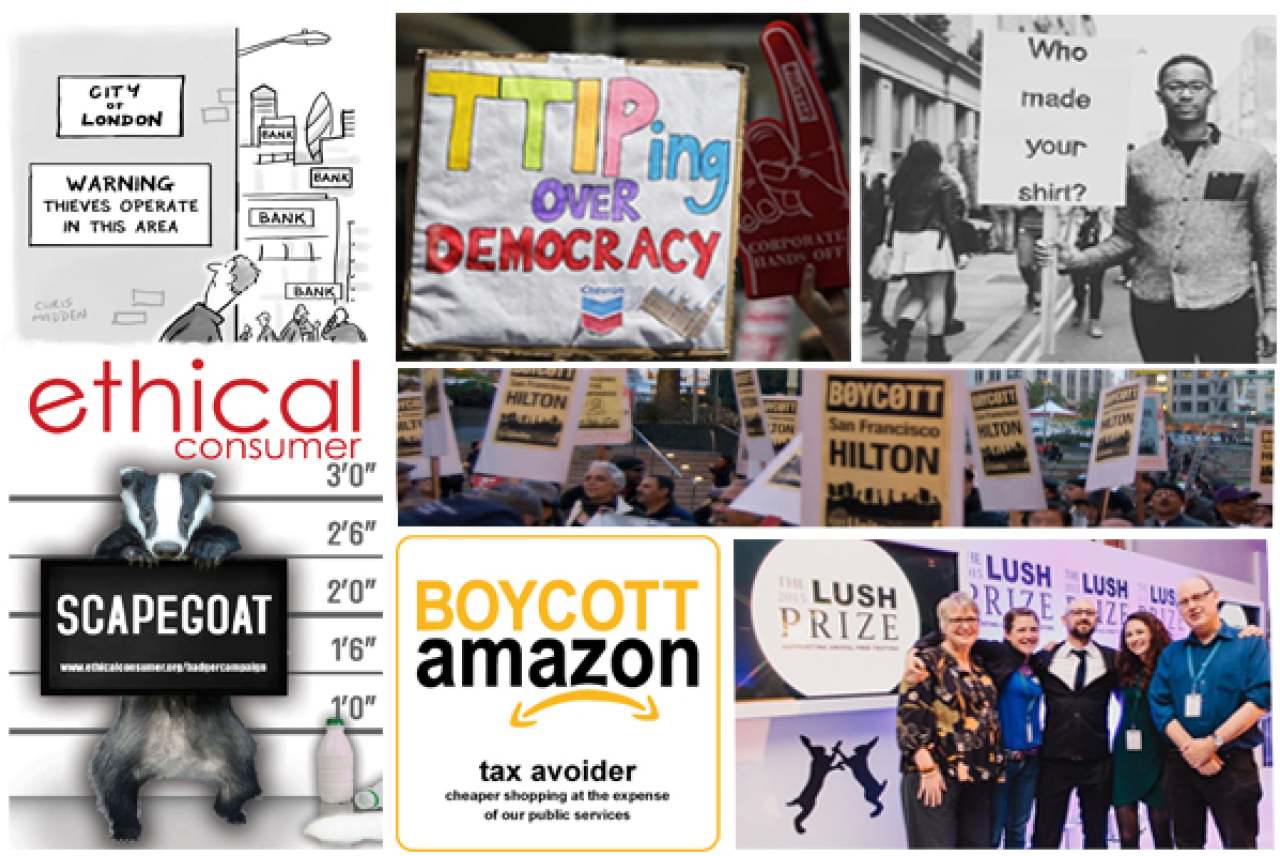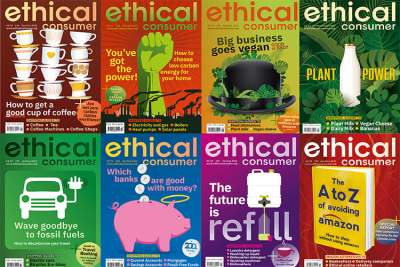Mission Statement
1. Helping you to challenge corporate power
It is becoming widely accepted that the global economic system should be able to pursue ethical as well as financial goals. In a world where people feel politically disempowered, and where governments are becoming less powerful than corporations, citizens are beginning to realise that their economic vote may have as much influence as their political vote.
This is true for both individuals and institutions such as clubs, societies, companies and local authorities. We therefore have a team of researchers tracking corporate behaviour on a daily basis so that you have up-to-the-minute information on which to act in the marketplace.
2. Democratising the market
Ethical Consumer aims to enable you to assert your own ethical values through the market by providing information about the company groups that lie behind the brand names on a product-by-product basis. Information is presented in a way (with accordions and rating tables) that allows you to make decisions based upon your own beliefs and priorities. We do however recommend Best Buys for those who are broadly sympathetic to all the issues we cover.
3. Transparency of research
Most of the information we use comes from previously published sources - from campaign groups as well as from business directories, company reports and government data. Unlike some ethical rating projects our ranking system is fully transparent and all our data included in each product guide is available to subscribers.
We welcome feedback on each element as well as the broader aspects of our rankings.
4. Letting the companies know
We encourage people not only to buy ethically but also to let the companies know why. This is the most effective way to drive behaviour change. Subscribers to this website have a handy one-click facility to email a company with comments on their ethics - both positive and negative - on company profiles.
Our researchers also contact all the companies before beginning each ranking project to ask them detailed questions on your behalf about their policy and practice on ethical issues.
5. Wider political action
Ethical consumerism is not a replacement for other forms of political action. But it is an important additional way for people to exert their influence. For example, most of our product guides contain details of campaigns for changes in regulation which need your support too. We also have our own list of broader regulatory changes which we believe are necessary for a sustainable and compassionate future.
Help support our mission by subscribing to Ethical Consumer.




